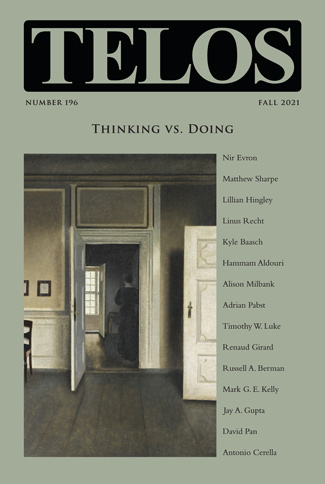In today’s episode of the Telos Press Podcast, David Pan talks with Lillian Hingley about her article “The Feminine Character: The Allegory of Ibsen’s Women in Adorno’s Modernist Literary Theory” from Telos 196 (Fall 2021). An excerpt of the article appears here. In their conversation they talked about Adorno’s idea of the “feminine character” and how it relates to his broader critique of capitalist society; Adorno’s reasons for focusing on the women of Ibsen’s plays; the ways that Adorno uses the idea of allegory to interpret Ibsen’s work; how Adorno links individual tragedy to more general structures of alienation; and whether Adorno is trying imagine a world without tragedy or, alternatively, if tragedy for Adorno is just a part of human existence. If your university has an online subscription to Telos, you can read the full article at the Telos Online website. For non-subscribers, learn how your university can begin a subscription to Telos at our library recommendation page. Print copies of Telos 196 are available for purchase in our online store.
|
Telos 196 (Fall 2021): Thinking vs. Doing is now available for purchase in our store. Individual subscriptions to Telos are also available in both print and online formats.
|
||||
|
Telos Press Publishing · PO Box 811 · Candor, NY 13743 · Phone: 212-228-6479 Privacy Policy · Data Protection Copyright © 2024 Telos Press Publishing · All Rights Reserved |
||||








